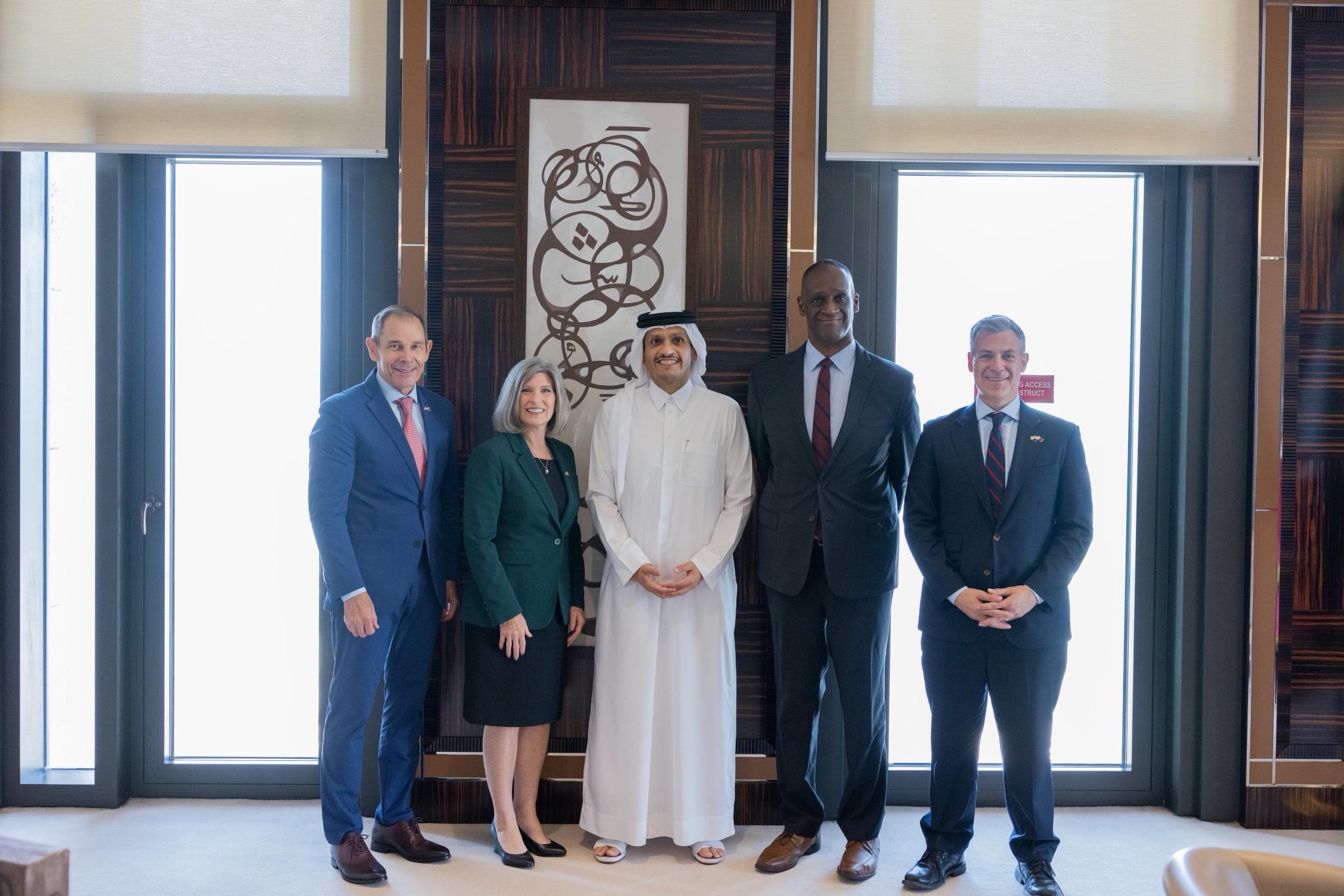The war in the Gaza Strip entered its 11th month with no ceasefire in sight after a long period of stalemate in the talks between Israel and Hamas.
A United States Republican delegation has visited Qatar and other regional countries in an effort to negotiate a deal for the release of captives between Israel and Hamas.
Iowa Senator Joni Ernst, who led the delegation, announced the visit in a statement on Saturday. The tour included stops in Egypt, Jordan, Saudi Arabia and Israel.
This visit follows the recovery last week of the body of 26-year-old American-Israeli captive Hersh Goldberg-Polin from the Gaza Strip.
“Every second counts when Americans are being held by Iran-backed Hamas,” Ernst said. “On my fourth trip to Israel since October 7, this delegation’s mission was clear: pave a way to bring our citizens home and decimate Iran-backed Hamas.”
The delegation included Indiana Congressman Jim Banks, Utah Congressman John Curtis, and Iowa Congresswoman Mariannette Miller-Meeks.
In Qatar, the delegation met Qatar’s Prime Minister and Minister of Foreign Affairs, Sheikh Mohammed bin Abdulrahman Al-Thani. Ernst also visited the Al-Udeid Air Base in Qatar, the largest U.S. military post in the Middle East.
In Egypt, the delegation met President Abdel Fattah El-Sisi, whereas in Saudi Arabia they met Crown Prince Mohammed bin Salman. In Israel, the delegation met Prime Minister Benjamin Netanyahu before heading to Jordan, where they met King Abdullah II.
Ernst, a member of the 2020 Abraham Accords working group, said the visit came after the body of Goldberg-Polin, the U.S.-Israeli captive, was recovered by Israeli occupation forces along with five other captives in the Gaza Strip on September 1.
In a statement following her regional visit, Ernst echoed Israel’s support for the elimination of Hamas, a goal long used by Netanyahu to continue the war in the Gaza Strip, despite it being widely described as not realistic.
“We must keep working on a deal that ensures the forever survival of Israel, destroys Hamas’ ability to reconstitute in the region, and releases our hostages. During this visit, we pressed regional officials to use their leverage to secure such a deal,” she said.
Last week, senior Hamas member Khalil Al-Hayya revealed that all six captives found dead could have been released alive under a deal, and blamed Netanyahu for their deaths. Al-Hayya noted that they were all killed alongside their guards by Israeli forces by live bullets or air strikes.
Al-Hayya also said that the movement had sent a video of Goldberg-Polin to his family “for humanitarian reasons”, following the intervention “of many people through” Qatar, a central mediator between Israel and Hamas.
“We responded with humanitarian and political dimensions, to push towards progress to conclude a real deal. We handed the Qatari brothers a video of this young man talking to his mother and his father,” Al-Hayya told Al Jazeera, adding that all connection was lost with him later.
U.S. drafting new deal
According to Reuters, at least 101 Israeli captives, including some that are believed to be dead, are still held by Hamas amid an absence of a deal.
At least 500,000 people took to the streets of Tel Aviv on Saturday evening to pressure Netanyahu to agree to a deal that would enable the release of the remaining captives.
The war in the Gaza Strip has surpassed 11th months with no ceasefire in sight after a long period of stalemate in the talks between Israel and Hamas.
In the same time period, Israel has killed nearly 41,000 people in the Gaza Strip, according to Gaza’s health ministry, while causing a worsening humanitarian crisis.
Meanwhile, on Saturday, U.S. Central Intelligence chief Bill Burns and his British MI6 counterpart, Richard Moore, confirmed ongoing efforts to reach a deal in a joint Financial Times (FT) op-ed.
“Bill has played a hands-on role in bringing the negotiating parties together with help from our Egyptian and Qatari friends. We continue to work together to deescalate tensions in the region,” Burns and Moore said.
Israel’s public broadcasting authority, KAN, separately reported that Washington is drafting a new deal. Citing sources privy to the matter, the Israeli media entity noted that it remains unclear when the U.S. would publish the new outline, claiming that new demands by Hamas made it “difficult to publish” to the public.
This came after KAN reported on Saturday that the Americans are presenting a new deal, which would include points of contention, despite being not optimistic about reaching one.
Some of the current key sticking points in the talks include Netanyahu’s repeated rejection of Israel’s full withdrawal from the Philadelphi Corridor, the Rafah Crossing and the Netzarim Corridor.
A bridging proposal was presented during a round of talks in Doha on August 15, which Hamas said constituted “a reversal against what the parties reached on July 2, based on Biden’s declaration on May 3, and Security Council Resolution 2735 on June 11”.







